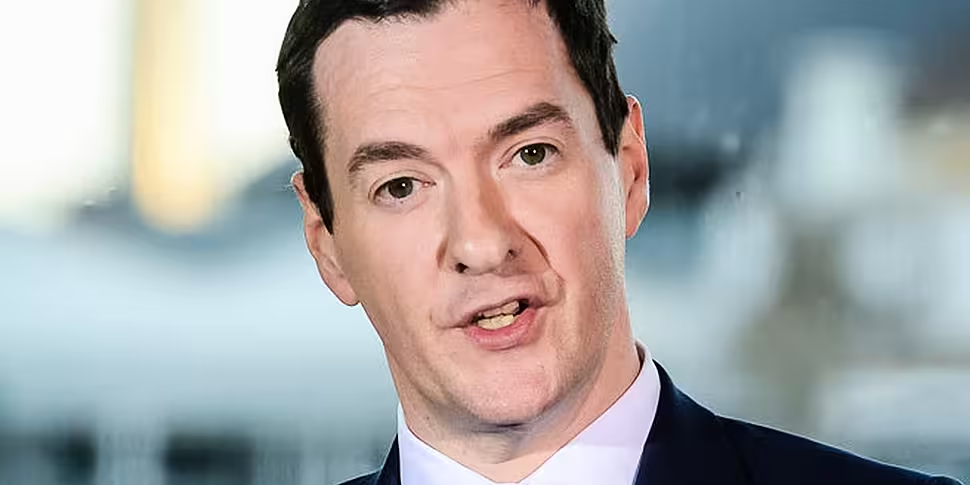George Osborne is set to warn that a vote to leave the European Union would cost the Northern Ireland economy £1.3bn (€1.65bn).
The British Chancellor is making a two-day visit to Northern Ireland and the Republic, and is expected to say there will be an "inevitable hardening" of the soft border with the Republic of Ireland if the UK leaves the 28-nation bloc.
He will unveil new analysis suggesting a Leave vote on 23rd June will lead to a rise in unemployment in Northern Ireland of around 14,000 over two years.
Mr Osborne will also claim house prices would be £18,000 (around €23,000) lower by 2018 in Northern Ireland than they would be if the UK voted to remain.
"At the moment, Northern Ireland is among the best regions of the UK when it comes to creating jobs," Mr Osborne is expected to say.
"It's a great success story that I am confident we can build on if the UK remains in a reformed EU.
"But if the UK votes to leave, every credible independent voice agrees there would be a profound economic shock that would hurt people's jobs, livelihoods and living standards.
"It is also inevitable that there would be changes to border arrangements. Leave campaigners who suggest this is not the case are simply not being straight with people."
Speaking to reporters at Warrenpoint this morning, Mr Osborne says farmers in particular would suffer, saying "if you're trying to sell milk from outside the EU into the EU you have to pay tax":
However, farmer Andrew Burleigh does not accept the Chancellor's claims that Northern Ireland is particularly vulnerable to the "economic shock" and tighter border controls.
He said: "When you look back down through the years, there was always smuggling along the border and that's never going to be counteracted anyway. It'll always go on.
"Where there's a land border, you're going to have smuggling - let it be people, let it be produce, it's always going to be that way. Where there's a pound to be made, those guys will make it."
Border concerns
Northern Ireland's First Minister, Arlene Foster, represents a constituency on the northern side of the 95-year-old boundary.
She is campaigning to leave the EU, arguing: "We have a Common Travel Area. We had it long before the European Union. We will have it again if the referendum brings out a leave vote.
"We will work together closely with our nearest neighbours and do so in a very constructive way."
Irish politicians have questioned how Leave campaigners hope to regulate immigration with an open border, a boundary they do not exclusively control.
The Taoiseach has warned of the 'possibility' of border controls if a Brexit takes place.
Foreign Affairs Minister Charlie Flanagan has said he fails to see how any possible border restrictions "will not become a live issue if there is a vote to leave".
Cavan County Councillor John Paul Feeley explained: "If Britain decides to leave the European Union, it will be a border between an EU member state and a non-EU member state.
"Whatever arrangements are required will have to be entered into with the agreement of all of the EU countries, not just Ireland."
Meanwhile, a Cavan-Monaghan TD says a potential Brexit is of serious concern to those living along the border.
Fianna Fáil's Brendan Smyth says local people fear that getting into and out of the North will become much more difficult, if Britain votes to leave the EU.
During the Troubles, the border between the North and Republic was the most militarised border in Western Europe but the peace process consigned the armoured checkpoints to history.
At 500km long, with multiple crossing points, it would be virtually impossible to fortify the only land border between the UK and the EU.
The Government here is examining how many customs officers and border control points with Northern Ireland would be necessary in the event of a Brexit.









